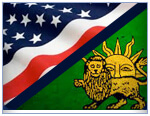The History Of Poker In The US
 While poker itself was more or less developed during the early 19th century, this game does appear to have been based upon several other versions or variations. As you well know, poker has since risen from very humble beginnings to become not only one of the most popular pastimes around, but it is even a huge spectator sport around the world. On top of all this, it has developed into a game as uniquely American as mom and apple pie.
While poker itself was more or less developed during the early 19th century, this game does appear to have been based upon several other versions or variations. As you well know, poker has since risen from very humble beginnings to become not only one of the most popular pastimes around, but it is even a huge spectator sport around the world. On top of all this, it has developed into a game as uniquely American as mom and apple pie.
Where Poker Came From:
One of the most interesting things about poker is that there does not seem to be any clear cut agreement as to exactly where its origins lie. For example, one school of thought is that the origins of poker are a Chinese game invented sometime before 969 AD. The Emperor Mu Tsung is reported to have played a 'domino cards' game, which might be the oldest form of poker.
Other authorities claim the game might have originated in India or even Persia. The Indian game of Ganjifa used 96 painted playing cards made from paper thin slices of ivory or precious wood that were actually used for several different types of betting games. Persians played another game known as As Nas which included 25 cards, several different rounds of betting and a system of hand rankings.
From Persia To The USA:
 Although many authorities have different ideas about the early history or beginnings of poker, it is certainly clear that little is known about how the game came to Europe, from whence it was most certainly brought to America by traders and colonists. The first confirmed version of a game that is directly related to modern poker is the Spanish Primero, which dates to 1526.
Although many authorities have different ideas about the early history or beginnings of poker, it is certainly clear that little is known about how the game came to Europe, from whence it was most certainly brought to America by traders and colonists. The first confirmed version of a game that is directly related to modern poker is the Spanish Primero, which dates to 1526.
Primero, which dealt three cards to each player may have also been the forerunner of three-card monte and other US-based poker games. Features of the game included bluffing and high stakes betting even while holding poor cards in order to deceive an opponent. Primero led to several additional European versions like the German Pochen and the French Poque.
How Poker Developed:
French colonists most likely brought their version of poker to the new world, through Canada. In fact, poque was the national card game of France at the time. But the major development which brought this game to America was the founding of the French colony of New Orleans in the beginning of the 18th century. Initially, the game was confined to New Orleans, Louisiana and the surrounding area, but then it started spreading fast up along the Mississippi River and eventually throughout the whole of the United States.
Interestingly enough, during this time the main gambling game of the time was three card monte (which was perhaps descended itself from the Spanish Primero). The thing that held back the development of this version of poker was the fact that everyone knew it was too easy to rig. Poker itself, based on poque, was actually seen as more challenging and more honest, which was probably at least part of the reason for its rapid spread throughout America.
One of the first written references was made to modern day poker in 1834 by Jonathan H Green. He referred to it as the 'cheating game.' He was also one of the first to formally name and even document the intricacies of poker.
Poker & The Wild West:
 There is also a sense of romance about poker, especially in the Wild West period of the United States. After the end of the Civil War (yes, poker was played by the soldiers on both sides) it would seem that another rapid development of poker took place. With the next decade or two poker tables could be found in just about every saloon across the west. Of course, by this time the game was also becoming increasingly more popular in the east as well.
There is also a sense of romance about poker, especially in the Wild West period of the United States. After the end of the Civil War (yes, poker was played by the soldiers on both sides) it would seem that another rapid development of poker took place. With the next decade or two poker tables could be found in just about every saloon across the west. Of course, by this time the game was also becoming increasingly more popular in the east as well.
The joker was added as a wild card to the standard deck in 1875. Ever since this event, poker has become a distinctly American game. In fact, the American version was actually introduced to Europe in 1871, when Queen Victoria of England overheard the US Minister to Great Britain explaining the game to members of her court.
Different Major Poker Variations:
The first variation of modern day poker to emerge was 5 Card Draw. This rose from very obscure beginnings, most likely sometime during or slightly before the Civil War, to become the dominant game for almost a full century.
Stud poker was also very popular. The laws of Nevada actually played a major role in its development since it was determined draw poker was based on skill and stud was based solely on chance. This eventually led to the legalization of casino gambling in Nevada in 1931. That led directly to 7 Card Stud taken over the throne shortly before World War II.
The next poker wave was Texas Hold'em. It had been played for a while, supposedly being invented in Robstown, Texas near 1900. By the early 1970's it was the featured event in the World Series of Poker (WSOP) tournament. Today, this game is the indisputable leader in the world of poker in terms of playing frequency and popularity.
The Online Poker Boom:
The internet has also been primarily responsible for a huge poker boom, beginning about the year 2000. No longer did players have to trudge all the way to Atlantic City or Las Vegas in order to get their poker thirst quenched. Now, it was possible to play online from your own home.
Perhaps the single greatest and most influential event that made online poker become almost mainstream was Chris Moneymaker's win in the main event of the WSOP in 2003. In case you haven't heard the story, he invested $39 in a satellite tournament online, won his seat at the show and eventually went on to win the main event and the $2.5 million prize.
How Online Poker Has Developed:
These major tournaments have become huge events, even turning professional poker players into stars and celebrities. The invention of hole-card cameras actually created part of this online poker boom, since these tournaments now became spectator events. Television could tape the whole thing and then edit in such a fashion as to make an exciting show. Plus, the home audience knew what each player actually held, which made analyzing each play even more interesting and exciting.
The popularity of online poker continues to develop and mature. The major tournaments, like the WSOP, have been recently making huge prize money guarantees to the winners at these events, driving increased interest in online poker. There are also a number of different US states actually looking into changing their laws to make it much easier for players to engage in online poker. On top of all this, it seems as if every day a new poker website is opening.
Black Friday & DOJ Domain Seizures:
 Unfortunately, on April 15th, 2011, the US Department of Justice decided it was time to crack down on several online poker websites. This day has come to be known as "Black Friday" within the poker community, as the government actually seized the domain names of some of the most popular online poker platforms.
Unfortunately, on April 15th, 2011, the US Department of Justice decided it was time to crack down on several online poker websites. This day has come to be known as "Black Friday" within the poker community, as the government actually seized the domain names of some of the most popular online poker platforms.
This seizure included the popular sites Poker Stars, Full Tilt Poker, and Absolute Poker. They also seized additional internet domains and issued restraining orders against 77 bank accounts around the world. This also had a direct effect on poker players at many of those sites, freezing the accounts of many American players. While Poker Stars did eventually pay all its American players, the other sites have not done so, claiming after being forced to defend themselves in the government's court case has made this simply financially not feasible. The government has also accused Full Tilt Poker of running a "global Ponzi scheme," although this seems to be very unlikely.
Bottom Line:
The game of poker is shrouded in quite a bit of mystery as to its primary origins. However, it is also clearly a uniquely American game at this point. No matter which variation or form of poker, millions of people throughout the country are current players and enjoying this great American game. Hopefully, we will see some new developments that lead to the flourishing of the game of poker online in the very near future.
 While poker itself was more or less developed during the early 19th century, this game does appear to have been based upon several other versions or variations. As you well know, poker has since risen from very humble beginnings to become not only one of the most popular pastimes around, but it is even a huge spectator sport around the world. On top of all this, it has developed into a game as uniquely American as mom and apple pie.
While poker itself was more or less developed during the early 19th century, this game does appear to have been based upon several other versions or variations. As you well know, poker has since risen from very humble beginnings to become not only one of the most popular pastimes around, but it is even a huge spectator sport around the world. On top of all this, it has developed into a game as uniquely American as mom and apple pie.
 Although many authorities have different ideas about the early history or beginnings of poker, it is certainly clear that little is known about how the game came to Europe, from whence it was most certainly brought to America by traders and colonists. The first confirmed version of a game that is directly related to modern poker is the Spanish
Although many authorities have different ideas about the early history or beginnings of poker, it is certainly clear that little is known about how the game came to Europe, from whence it was most certainly brought to America by traders and colonists. The first confirmed version of a game that is directly related to modern poker is the Spanish  There is also a sense of romance about poker, especially in the Wild West period of the United States. After the end of the Civil War (yes, poker was played by the soldiers on both sides) it would seem that another rapid development of poker took place. With the next decade or two poker tables could be found in just about every saloon across the west. Of course, by this time the game was also becoming increasingly more popular in the east as well.
There is also a sense of romance about poker, especially in the Wild West period of the United States. After the end of the Civil War (yes, poker was played by the soldiers on both sides) it would seem that another rapid development of poker took place. With the next decade or two poker tables could be found in just about every saloon across the west. Of course, by this time the game was also becoming increasingly more popular in the east as well. Unfortunately, on April 15th, 2011, the US Department of Justice decided it was time to crack down on several online poker websites. This day has come to be known as "
Unfortunately, on April 15th, 2011, the US Department of Justice decided it was time to crack down on several online poker websites. This day has come to be known as "


